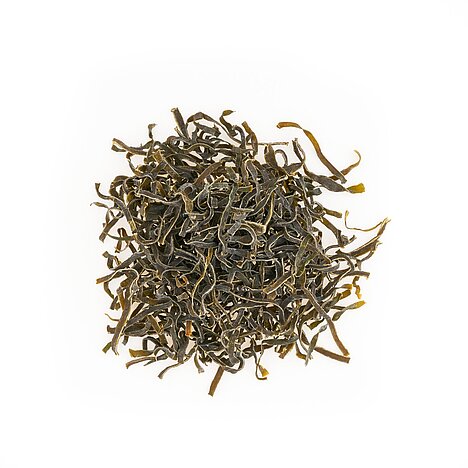Sango coral

What is sango coral?
Sango coral is a Japanese marine coral that originates mainly from the island of Okinawa. It consists of the remains of dead coral stalks that have accumulated on the seabed. These are collected and processed into a fine powder that can be used as a dietary supplement.
Sango coral contains high levels of calcium and magnesium, which are essential for healthy bone metabolism. It also contains many other minerals and vital substances such as chromium, iodine, boron, copper, germanium, iron, manganese, molybdenum, selenium and silicon. These have various functions in the body, such as regulating the fat and energy balance, supporting thyroid function and promoting cell health.
How does sango coral affect dogs?
Sango coral can have various positive effects on the health of dogs. Firstly, it can improve bone density and integrity by meeting calcium and magnesium requirements. This can be particularly helpful for older dogs or dogs with osteoporosis or bone defects. On the other hand, it can counteract stress and exhaustion by balancing the acid-base balance and supplying the cells with important nutrients.
Sango coral can also strengthen the immune system, promote digestion and improve skin and coat health. It can also inhibit inflammation, accelerate wound healing and reduce the risk of infection.
What are the advantages and disadvantages of sango coral?
Sango coral has many benefits as a dietary supplement for dogs, but there are also some disadvantages to be aware of. The benefits include:
- It is a natural source of many minerals and vital nutrients
- It has a high bioavailability, which means it is well absorbed by the body
- It has an alkaline effect, which means it neutralizes excess acids in the body
- It has no known side effects or interactions with other substances
- It is sustainably sourced without causing damage to living coral reefs
- It is not radioactively contaminated, despite the Fukushima reactor disaster
The disadvantages include:
- It is not suitable as a sole source of calcium, but must always be combined with other sources of calcium
- If overdosed, it can lead to an oversupply of calcium or magnesium, which can lead to digestive problems or kidney problems
- It can lead to allergic reactions in sensitive dogs
- It is relatively expensive compared to other supplements
How to dose Sango coral for dogs?
The dosage of sango coral for dogs depends on various factors, such as the dog's weight, age, health and diet. A general recommendation is to give 2-4g of sango coral per 10kg of body weight per week. For cats, a dosage of up to 0.1g per kg body weight per week applies.
Sango coral can be administered as a powder mixed into the food or as a capsule. It is advisable to increase the dosage slowly and observe the dog's reaction. If there are signs of intolerance or overdose, the dosage should be reduced or discontinued.
Sango coral can also be combined with other food supplements, such as vitamin K, vitamin D or MSM. These can enhance or supplement the effect of sango coral.
Sango coral is an interesting food supplement for dogs that provides many minerals and vital substances. It can support bone, cell and immune function, reduce stress and fatigue and promote general health. However, it also has some disadvantages, such as the need to combine with other calcium suppliers, the risk of overdose or allergic reaction and the high price. Therefore, before using sango coral, you should inform yourself well, adjust the dosage individually and observe the dog's reaction.
If you notice any signs of hypersensitivity or poisoning in your dog, you should see your vet immediately. We are not a substitute for a vet, but we try to be as accurate as possible. Every dog reacts differently and we recommend you get a second opinion or consult your vet if in doubt.
Stay healthy and take good care of your four-legged friend!😊